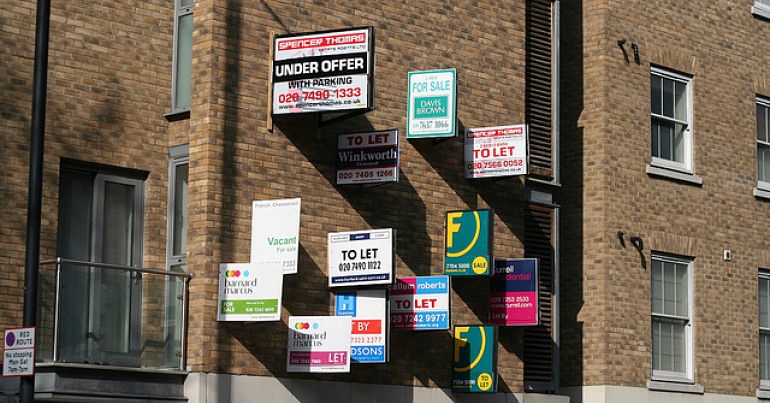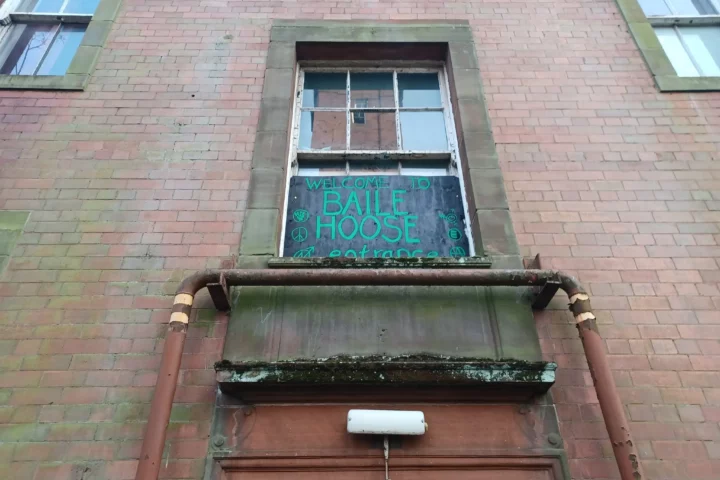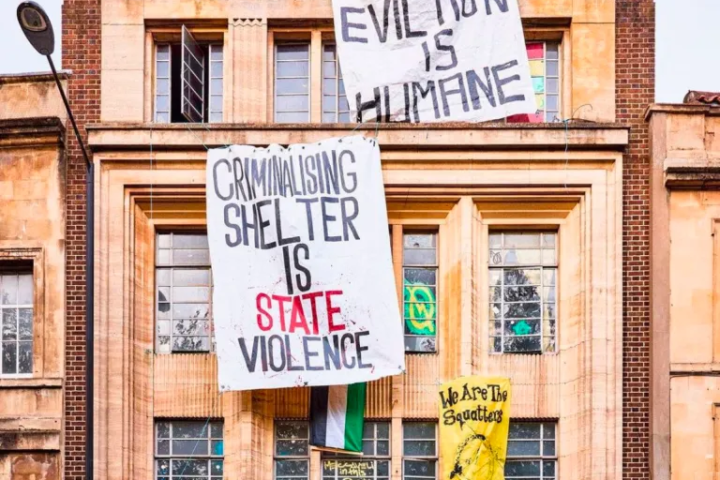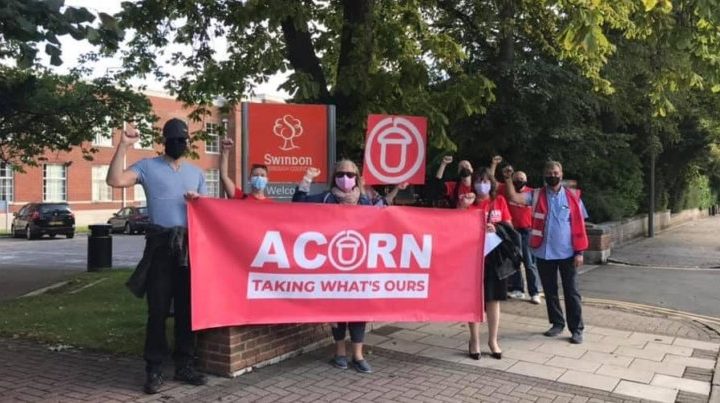From The Canary
This article was updated on 15 January at 10:55am to clarify that the woman in Brighton has been served eviction papers but has not yet been evicted as previously stated.
Last week, many UK mainstream media outlets toed the government line and reported that an ‘eviction-ban’ would be extended until mid-February.
But campaigners have called the ban a ‘hoax’. In fact the government’s announcement actually weakens protections for many renters. From 11 January, landlords are allowed to evict people who have fallen into more than six months rent arrears.
Alva Gotby, a renter and an organiser with the London Renters Union, said on Friday 8 January:
The Government has sneaked out this desperately cruel legislation on a Friday night. Clearly they’re ashamed – and they should be. If people are forced out of their homes, the virus will spread. Everyone is making enormous sacrifices to get transmissions down, yet, shockingly, the Government has chosen to prioritise the profits of landlords over our lives.
Bailiff evictions have been halted until 22 February, except in – what the government calls – the most “egregious cases” which would include “anti-social behaviour” and “illegal occupation” (which could include squatting). However these restrictions do not stop landlords from bringing eviction proceedings in the courts against those who have fallen into arrears.
Made homeless during the pandemic
The Canary got in touch with the Acorn renters’ union to ask about whether its members had been threatened with eviction during the pandemic. Acorn put us in touch with union member Anthony Howell who was evicted from his home in Brighton on 4 November 2020, just one day before the second UK-wide coronavirus lockdown began. Howell is now homeless, and sleeping at the building site where he is currently working.
In 2019 Howell was served a Section 21 notice of eviction for his home, where he had lived for nine years. He decided to challenge the eviction through the courts. His four flatmates chose not to fight, and found other accommodation. According to Howell:
Because everyone left, I was in a predicament. I could have left too – but if I did I would have been letting the landlords do what they do unchallenged
So Howell chose to go to court. He told us that the case was heard in February 2020, and unfortunately, he lost. The court found that he was liable to pay all the rent arrears that had accrued after his housemates had moved out. Howell told us:
I got a date in the middle of March that I had to pay the arrears or be evicted. But then lockdown started and I got a 6 month stay of execution.
Once the pandemic hit, evictions were banned in most circumstances in the UK up until late September. From September onwards it was possible for evictions to take place again. Howell’s landlord soon moved to get him out.
On 4 November, bailiffs evicted Howell’s home. Acorn organised people to gather outside the house and try to stop the eviction. But police officers threatened the 30-strong crowd with arrest if they did not disperse. Howell told us how the police used legislation brought in to criminalise the trade union movement to order the crowd to move on:
The police came with bailiffs and they were extremely determined. Over 40 people were outside my house [trying to stop the eviction].
The police really overstepped the mark, they used anti-union laws to move us on, they threatened everyone with arrest.
Acorn wrote to the Police Commissioner and he claimed people had left peacefully, but actually they’d all been threatened under this spurious law.
Howell told us that the crowd moved on after the police threats, and the eviction went ahead.
The Canary contacted Sussex Police to ask for a comment about the eviction. A spokesperson stated:
We were called to prevent a possible breach of the peace after bailiffs reported that a number of people were trying to prevent an eviction of a man from a property in Chester Terrace, Brighton, on Wednesday 4 November. Officers attended and the group later dispersed peacefully
“People need to be prepared for the worst”
Howell said that he knows of one other person in Brighton who has been threatened with eviction since September: a woman with cancer who was served eviction papers on Boxing Day but has not yet been evicted.
But after last week’s announcement, he is afraid that evictions will speed up. We asked him if the government announcement allowing proceedings against those with six-month rent arrears would be a blow to renters. Howell replied:
Absolutely, the announcement [last] Friday will make it worse. People need to be prepared for the worst; certainly there will be landlords out there who will take advantage of this situation.
We need to be ready
The government’s announcement last week, far from being an eviction ban, has made it easier for landlords to evict people. We need to prepare for people being made homeless, despite the pandemic. It’s up to us keep a close eye on what is happening in our neighbourhoods, and be organised and ready to resist evictions.
Tom Anderson is part of the Shoal Collective, a cooperative producing writing for social justice and a world beyond capitalism.
Featured Image via Flickr
Get involved
- Read this Canary article about how benefit cuts are making people vulnerable to evictions during the pandemic.
- Check out Acorn, and London Renter’s Union




